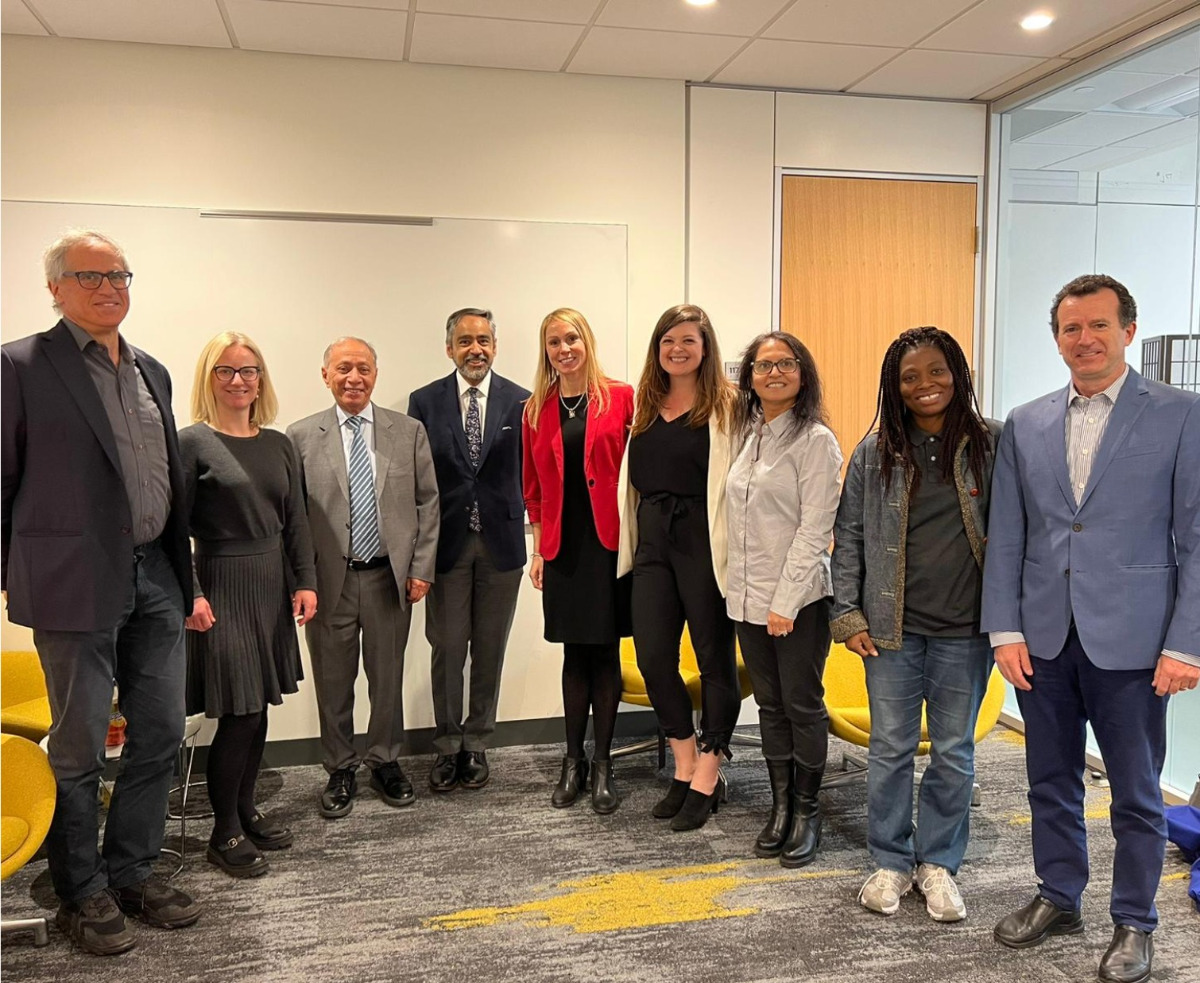
The Center on Forced Displacement (CFD) at Boston University fosters interdisciplinary research and engagement with the global challenge of forced displacement, drawing from international relations, social sciences, humanities, engineering, natural sciences, philosophy, gender studies, and beyond. CFD brings together multidisciplinary teams of researchers, students, scholars, practitioners, and artists from across schools and colleges at Boston University, around the country, and the world. These collaborations are crucial to helping the Center researchers better understand the history and sources of forced displacement, critically examine the policies and practices that exacerbate or alleviate human suffering, and generate ethical interventions to improve the lives of displaced communities and their hosts.
CFD serves as a platform for educators, students, researchers, activists, and policymakers to engage in interdisciplinary research, discussion, and education about forced displacement. Our projects and programs focus not just on refugees but also on internally displaced persons, stateless communities, and people displaced from their homes by structural violence. By connecting with local communities in Boston and the USA, as well as academic and professional partners in Uganda, Colombia, Pakistan, Lebanon, Turkey, and the Western Balkans, CFD learns directly from and with the communities grappling with the challenges of forced displacement and creates venues for new ways of thinking, research, and program and project design.
The center activities are built on four broad and intersecting, multi-disciplinary areas of research:
- Human environments and climates;
- Art, expression, identities;
- Healthy lives and meaningful livelihoods; and
- Training and ethical engagement.
CFD emphasizes interdisciplinary learning and engagement through a range of programs that include research fellowships, Summer Schools, Border Studies Program, and research on current gaps in education and training to name a few. In addition, the center is committed to engaging with a broad audience, an example of which is the recent launch of a bi-annual multi-genre magazine Critical Forced Displacement.
The Center’s current team of twelve includes senior and junior scholars, researchers, students, and staff representing interdisciplinary backgrounds including engineering, literature, sociology, political science, philosophy, computer science and art. It also has a strong network of 38 affiliated faculty members from Boston University representing nearly all of the 17 schools and colleges on campus, and 10 advisory board members from different universities around the globe (including Egypt, Ghana, Australia, UK, Mexico, and South Africa) that similarly reflect CFD’s commitment to interdisciplinary projects and collaborations.
As the newest and only IMISCOE member from the United States, the Center on Forced Displacement is dedicated to including more research and education partners from North and South America in IMISCOE’s work and events. By designing and running projects such as our Sawyer Seminar Series and interdisciplinary book on dynamics at the US-Mexico and EU-Serbia borderlands, the Center recognized the many similarities between these geographies and how important it is to connect them and put them in conversation. In addition to a robust research network, CFD also brings strong experience in running education programs and interdisciplinary, multimethod research projects to the IMISCOE network. The Center has several educational programs for students and practitioners and extensive experience in organizing international conferences and convenings. CFD can contribute significantly to existing IMISCOE activities such as the Annual Conference and spring and summer workshops and conferences.
